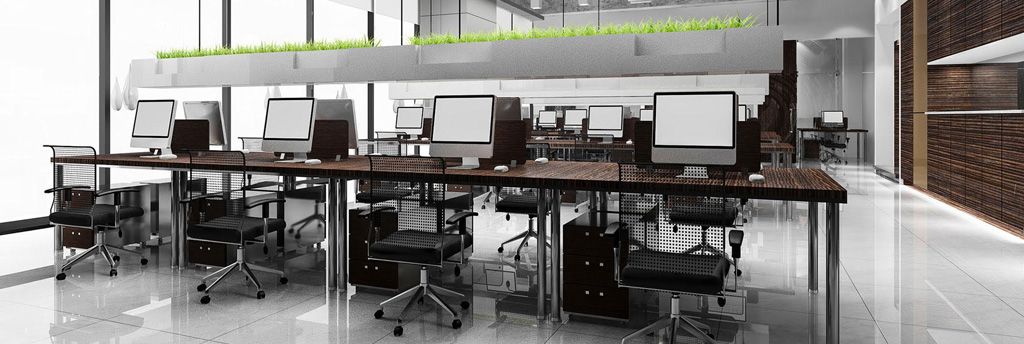The workplace is evolving rapidly in response to changes and challenges in the modern world. Pandemic disruptions, uncertain markets, and new technologies have forced businesses to reconsider their use of office space. Rethinking of physical space comes with a rethinking of office workspace policy. As hybrid work, co-working spaces, and agile workplaces gain traction it has become necessary to improve office security, productivity, and sanitation by adopting new protocols - such as the clean desk policy.
A clean desk policy defines and enforces the state of a vacated work desk. Over the course of activity an occupant may populate the desk with work files, food and beverage containers, personal items, and general paper litter. As the name suggests 'clean desk' removes and cleans traces of occupation from a work desk, leaving it pristine and usable for the next occupant. A clean desk policy may involve instructions and reminders to desk occupants, monitoring of desk occupancy, and timely activation of maintenance teams.
Why a Clean Desk policy?
Clean desks have attained increased importance in the modern workplace. The vitality of employee experience has been acknowledged in many studies and surveys. Employees who have a positive and comfortable experience at the office are more likely to stay, put in more effort, and have greater productivity. Agility is another aspect businesses pursue with respect to the office space. Task-oriented repurposing of space helps companies accommodate a variety of work-settings with maximum optimization. With the rise of unassigned seating and co-working spaces, security deserves special attention. It is essential documents or devices containing sensitive information stay in the right hands. A policy of clean desks can help in each regard.
Experience
Clean desks reduce clutter, improve work hygiene, and generate a good experience at the workplace for employees. On average, an employee spends 4.3 hours a week searching for paper. An orderly workdesk contributes to peace of mind, reduces time wastage, and improves productivity.
Agility
Clean desks ensure vacated seats are ready-to-use for the next occupant or activity. With companies aiming for space optimization and high desk utilization, workdesks are liable to see near-constant use in a variety of settings. A clean desk policy ensures there is minimum idle time between consecutive occupancies.
Security
The policy ensures left-behind devices and documents are safely deposited for later collection. This feature is of particular importance in flex or co-working spaces where desks may be shared between different organizations. A clean desk policy, combined with a clear screen policy, prevents leakage of potentially sensitive data.
Technological Implementation
Currently clean desk policies are implemented manually via training and instruction of employees, spot checks to monitor compliance, and regular reminders on adherence. Often employees consider such a manual policy over-bearing. Technologies for remote viewing or sensing can continuously monitor occupancy; when vacancies are detected service teams may be notified and dispatched for clean-up. Such an automatic approach removes a burden from desk occupants and further improves their workplace experience.
Video cameras
CCTV system of cameras may be used to monitor workdesks remotely, noting occupancies and vacancies. Real-time information on a vacancy can be passed on to the maintenance team.
Ceiling mounted sensors
Occupancy sensors which detect human footprint can automate the monitoring process. Such sensors can distinguish between temporarily and permanently vacated seats, sending accurate notifications about which desks need a clean-up.
Smart support
Occupancy data can be integrated into a dashboard that could optimize maintenance services. A maintenance dashboard would inform the support team on which desks are unused, which desks are occupied, and which desks were occupied and subsequently vacated. Such 'smart' teams can direct clean-up efforts where required, reducing wastage.
Conclusion
In the modern workplace every single desk counts - it is assessed for value, measured for utilization, and optimized for output. This applies even more in co-working rental spaces where workdesks are assets whose returns must be maximized. Clean desk policies make emininent sense in this business reality. They help enhance the experience of a workdesk occupant, increase efficiency and security, and enable agile seating. With newer technologies clean desks can be implemented with low effort, high intelligence, and high accuracy.
